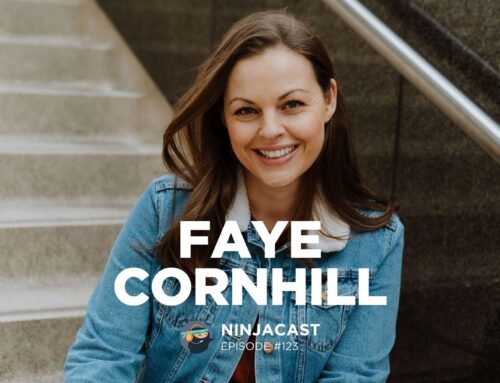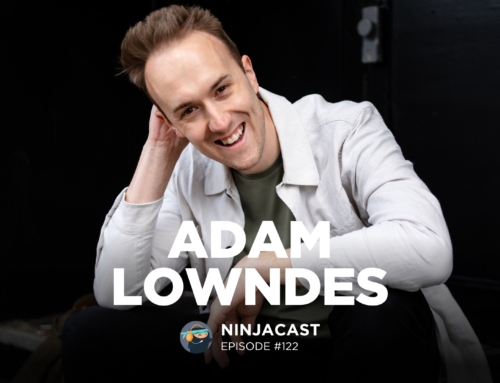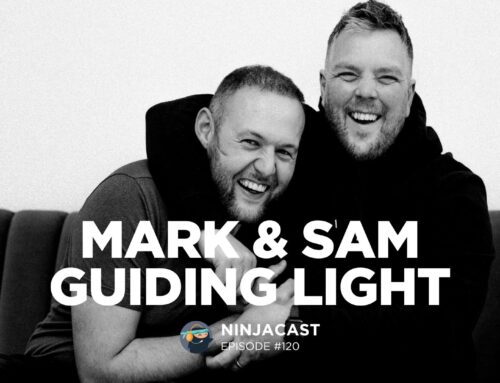043: Eric Ronald – How to Sustain a Creative Mindset, Create Unique Stand-Out Work & Avoid Burnout!
October 10, 2021
“One day we leave the earth, the only thing that will truly matter is the human relationships that you’ve experienced. “
ERIC RONALD
Hey everyone! It’s Sally here, from Studio Ninja. Today’s episode is all about Eric Ronald.
Eric is all about doing things differently. Not interested in norms and passing trends, he prides himself on paving his own way, creating dramatic, emotive stories passionately crafted for his beloved wedding couples. In Eric’s mind, great art is timeless and that is something he strives for. He believes that to truly create stunning work you need to be just as much a technician as you are an artist so that you have the photographic vocabulary to skilfully and artfully document a wedding day in whatever circumstances get thrown at you.
Eric also puts great importance on the uniqueness of each story he captures; not simply applying his same style and approach to each wedding, but rather genuinely investing himself in the couple and their story in what results as it’s own unique creation. It’s no wonder Eric has been highly awarded for his wedding albums as he not only puts great importance on a single image, but by taking inspiration from his background in cinematography he applies a wholistic narrative-based approach throughout his process. Each image represents an important building block used to craft his stories. Eric’s passion and unique ethos has served him well having worked with couples in some of the world’s most incredible locations including Kenya, Sri Lanka, Jordan, Cyprus, Montenegro, India, the Philippines and Egypt.
Check out some of the biggest points from Eric’s interview below:
Let’s dig a little deeper into the TV production, cinematographer side of things in your history. How do you feel that’s shapes the wedding photographer that you are now? Has it shaped how you shoot now?
Totally. And as you can imagine with the filmmaking thing and the TV thing, while on the surface, they’re similar, they’re so, so different. One is creative, one is technical. And as a photographer, I feel I embody those two universes which is yeah, interesting. But in terms of, I guess my first passion in cinematography I’m really interested in the language of cinematography. I’m going to use this word as all your listeners scoff, like storytelling. We all hear this word storytelling, and if you’re drinking a can of Coke, you’re drinking a story. If you go to a wedding photography workshop, there’s story tellers. I get that. I’m really interested in geeking out on the language of constructing a story through a sequence of images and there is this incredible art to it. I could talk about this for ages, so I won’t. But …
We all understand it. We watch Netflix, we see these amazing shows and we are consuming this language at angle by angle, shot by shot. We understand this language. And so as a cinematographer, you are just learning how to speak the language. We’re all capable listeners but how do you speak it? And the beauty of applying it to wedding photography, in my view, of course, everyone has their own ideas and philosophies, but what vibes with me is that a single photo won’t necessarily do a wedding day justice. If you’re a couple getting married, you want the entire day captured. You want the entire day turned into a wedding album in some form or another. You don’t just want the mantle piece photo.
And so I think it’s actually a really rare genre of photography, where if you go to an art exhibition, you might have the same topic or the same subject. If you look at a newspaper, you’ll have a scatter of images that have nothing to do with each other in each different news article. There’s really no other genre of photography where you really can experiment with really fitting each shot one for the next right next to a each other. And so I really love considering that and geeking out on that. So when I hand over the collection of images to the couple, it’s really done in a considered way. The same goes with blog posts, slide shows, wedding albums, this idea of having intent with how each shot fits together. That is just one of many points to your question.
But I guess to maybe more swiftly move through some other points, cinematography is obviously so much about lighting and lighting is just one of the big things that keeps me loving what I do, is this dance with light, which the possibilities are limitless, what you can do with light. So to always keep exploring and always see light in a different way and use it in a different way. And then you have having all these different colors as a painter on your palette. You’ve got all these different ways that you can play with light. And I just love it. I’m always learning different ways and different techniques or stumble across something. But that foundation in cinematography I think meant that I could go into wedding photography already with a very good theory-based understanding of light.
So that really helps me a lot. Plenty of other points there, but I think they’re probably the two key points there. Then with TV, well, what I was specifically doing in TV for the most part is I was a technical director. Now there’s a few different aspects to that, but the most relevant is that you would sit in the control room and you’d look at all the different camera angles and you would have what’s called a CCU panel, where you’re adjusting the colour gains, the exposure, the black pedestal, which is contrast. And you’re looking at waveform monitors, and you’re making sure that the shots look beautiful and that they match and that your game show hosts has lovely skin, that’s beautifully lit and nice texture and all that stuff. So it really dials your eye into this idea of technical perfection and just even cutting between two cameras.
Seeing what’s different, seeing what you like about that camera and then tweaking the other camera to of make it similar. I just felt I really dialled my eye in there. And again, there’s probably some other points in terms of bringing TV into what I do like meticulously planning out the day. Again with that intersection of the technical stuff and the creative stuff. So much about me getting fun, creative shots that I like to take is actually the boring, meticulous planning and scheduling and stuff like that.
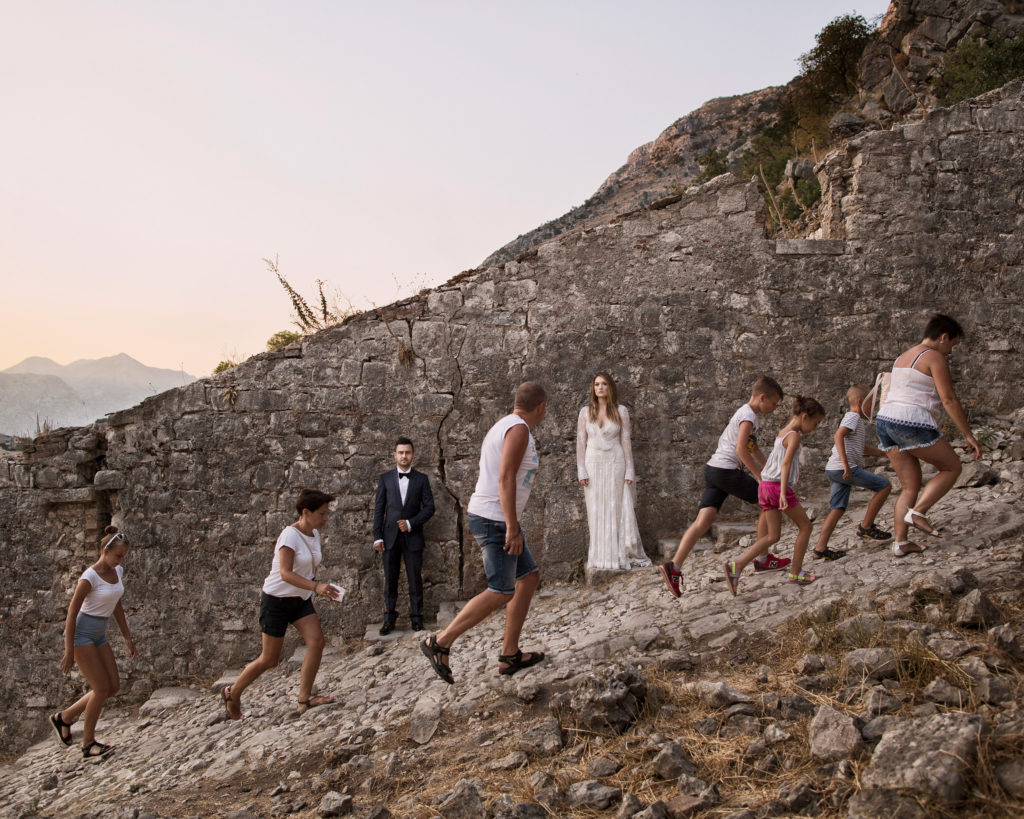
What are your top tips for avoiding burn out?
Well, yeah, it’s an inevitable cycle that everyone who wants to become a wedding photographer is going to start at a certain price point where it’s appealing for couples and you are going through a experience building and a momentum building process. And your fear is, “Oh, this isn’t going to work out. People aren’t going to want to book me.” And inevitably, if you’re passionate and you’ve got some base assets behind you, you are going to get there, you are going to succeed. So you are always making decisions in terms of your pricing and how many bookings you take on, telling yourself that you might fail or that’s what you’re preparing yourself for. So everyone ends up in the same situation of very quickly shooting at 50 plus weddings a year. And it is so exhausting and it is so not sustainable.
There is of course fluctuations, there’s people I know that shoot 60 plus weddings a year and good luck to them. That’s awesome, but are going to burn out eventually. That’s a certainty. And yeah, so everyone’s a little bit different. I was probably, I had a good few years of doing a really high number of weddings and I was able to sustain that. And I didn’t burn out as such, but the reason I do what I do as a wedding photographer and leaving my past career behind is I want to do something that I’m genuinely passionate about. I want to make photos that I want to make that excite me, and I want to have couples that really value what I create for them.
So can you do that shooting 50 weddings a year? I certainly couldn’t. I think I started hitting the play button in my mind and going through the same motions and then it’s like, “Well, if I’m going to do this, why shouldn’t I just be back banging out game shows? So that’s where I made some big changes in terms of the structure of my business and stuff.

Do you think if you dig deeper and dig right back, that wedding photography became more appealing because you have that instant gratification, when you deliver a gallery, you see the couple’s reaction and you get that feedback as a photographer, don’t you?
Yeah. Literally talking about this with my therapist at the moment.
Well, just this idea of certainly everyone likes a pat on the back, right? And yeah, there’s certainly been times in my career in the past where I’ve felt very unappreciated. That’s for sure. And yeah, you’re right. You can blow couple’s minds with what we can do. If we’re passionate about what we do, we can really hand over some special images and not even necessarily the ability ourselves as an artist, but just by being there with the camera in your hand, documenting the day. That in itself, if you are just have a base skill level to be able to capably do that, competently do that I should say, then you are going to blow people’s minds.
So yeah, it is really cool to have that. That gratefulness from the couple and appreciation for what you do. And yeah, I’m a bit of a photography geek. I love photography. So if couples really see that I’ve spent that time in care, maybe coming up with a few ideas to try and that everything’s very considered and things like that, there’s a whole other level of appreciation there as well. An interesting side note for that in terms of not just getting that, “Oh my God, you’re amazing. Thanks so much.” Because that’s really like a pat on the back thing. I do completely separate to that is more like … I don’t know if Eckhart Tolle, he wrote The Power of Now and stuff and he talks about this idea of an inner journey and an outer journey.
And you could even perhaps say that that validation from others is maybe more of an outer journey, pointless thing. Whereas I guess, so there’s some negative associations with that, but if you look at it more on a spiritual, inner purpose thing, that’s more what keeps me going which is regardless of what the couples say in terms of thank yous and all that stuff is going, I just so happen to be at a wedding day with a camera in my hand, but I’m documenting the human experience that it’s a regular day for the couple times 1000 because there’s just so much gravity and magnitude to that day to be freezing these moments in time and handing them over to the couple. It’s not about blowing their minds.
That actually gives to me this inner purpose of going, “No, this is important.” Which I really believe. So we’re not saving the world and there’s so many problems in the world right now and sometimes I think wedding photography is important when people are dying. And while there’s some truth to that, I also think you’ve got to do what you’re passionate about. And yeah, if you find purpose in what you do, then there’s maybe a place for all things that are important, I guess, or at least that’s how I sleep at night.
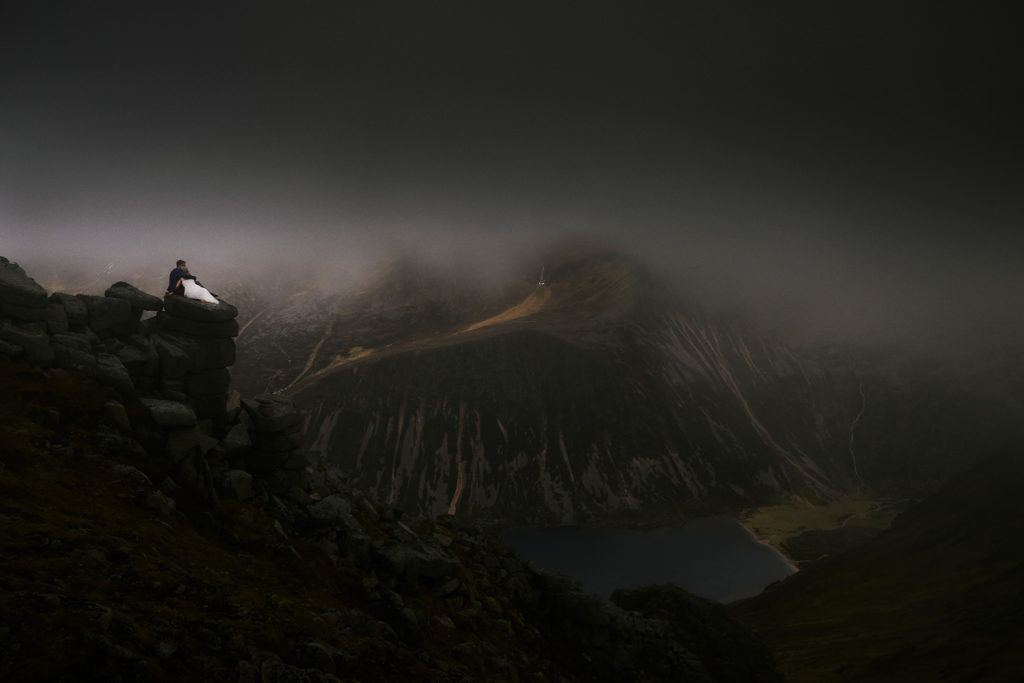
Thank you!
Thanks again to you all for joining us and a huge thanks to Eric for joining us on the show!
If you have any suggestions, comments or questions about this episode, please be sure to leave them below in the comment section of this post, and if you liked the episode, please share it using the social media buttons you see at the bottom of the post!
That’s it for me this week, I hope you all enjoyed this episode.
See you soon,
Sally
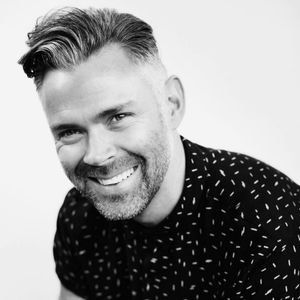
About Eric Ronald
Eric is all about doing things differently. Not interested in norms and passing trends, he prides himself on paving his own way, creating dramatic, emotive stories passionately crafted for his beloved wedding couples. In Eric’s mind, great art is timeless and that is something he strives for. He believes that to truly create stunning work you need to be just as much a technician as you are an artist so that you have the photographic vocabulary to skilfully and artfully document a wedding day in whatever circumstances get thrown at you.


